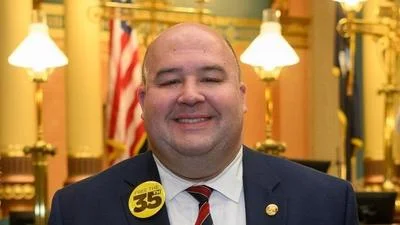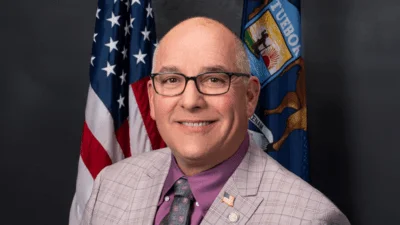Sandy K. Baruah President and Chief Executive Officer at Detroit Regional Chamber | Official website
Sandy K. Baruah President and Chief Executive Officer at Detroit Regional Chamber | Official website
The Detroit Regional Chamber has unveiled results from a recent statewide poll, conducted in collaboration with the Glengariff Group Inc., surveying 600 registered voters in Michigan. The survey, carried out between September 12 and 15, 2024, highlights the state's challenges in embracing the economy of the future.
Findings indicate that while there is interest in advancing towards a technologically driven economy, many voters remain hesitant to fully engage. This reluctance poses potential risks to Michigan's economic stability. The transition to electric vehicles (EVs) exemplifies these challenges. Political divisions and resistance to global trends are hindering progress, raising concerns about losing Michigan's automotive industry edge to competitors.
The poll further notes that as Michigan ramps up EV production, job losses could increase due to the reduced number of parts required for EVs compared to traditional vehicles. Additionally, EV sales face obstacles such as insufficient charging infrastructure, high costs, range anxiety, battery replacement expenses, and ethical concerns over raw material sourcing.
Despite some easing negativity about the economy and inflation among voters, perceptions still diverge from the reality of a fundamentally stable economy. There is a notable divide between rural and urban/suburban populations regarding readiness for future economic shifts and investment in education and technology.
Sandy K. Baruah, president and CEO of the Detroit Regional Chamber, emphasized Michigan's critical juncture: “Michigan is at a critical pivot point between peril and promise... But for Michigan to reap economic benefits, it must innovate, adapt, and prepare.”
Baruah pointed out that although many understand the need for innovation and skill development for the 21st century economy, a significant portion of voters are resistant to change. This resistance complicates policy reforms necessary for growth.
Richard Czuba of Glengariff Group highlighted voter concerns about Michigan's preparedness: “We now see a major disconnect with many voters having serious concerns about Michigan’s preparedness for coming changes in the economy.”
Czuba added that political factors contribute to voter unwillingness to pursue future automotive jobs within Michigan.
Efforts by businesses to enhance access to new technologies and educational opportunities are met with voter apprehension. This hesitancy threatens Michigan's competitiveness in an evolving innovation-driven market.
Furthermore, ongoing poor performance in public K-12 education remains an issue as labor unions largely control the state system. According to U.S. News & World Report's 2024 rankings on education quality across states, Michigan ranks #42—a slight decline from last year's position at #41.
For more details on this chamber poll or related information on state rankings by U.S. News & World Report covering various sectors like economy and healthcare can be accessed online.





 Alerts Sign-up
Alerts Sign-up